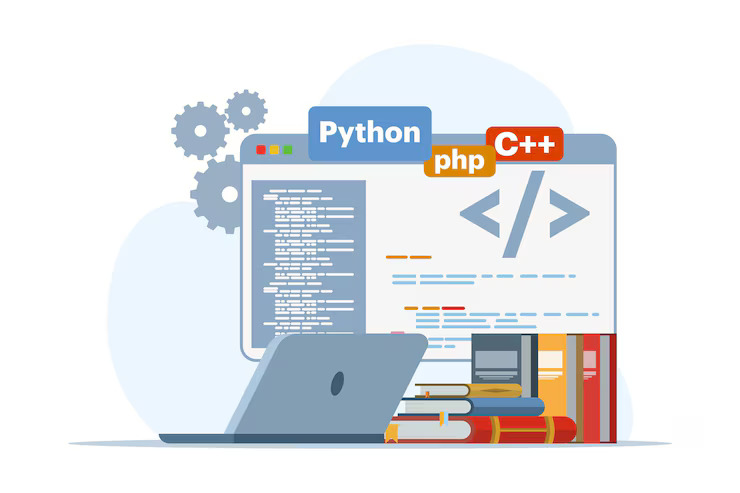 Python is one of the most versatile and widely-used programming languages, known for its simplicity, readability, and vast library ecosystem. Whether you're a beginner or looking to deepen your programming skills, mastering Python in 90 days is an achievable goal with the right approach. In this guide, we'll walk you through a Python learning roadmap to ensure you efficiently learn Python and build a solid foundation for real-world projects.
Python is one of the most versatile and widely-used programming languages, known for its simplicity, readability, and vast library ecosystem. Whether you're a beginner or looking to deepen your programming skills, mastering Python in 90 days is an achievable goal with the right approach. In this guide, we'll walk you through a Python learning roadmap to ensure you efficiently learn Python and build a solid foundation for real-world projects.
If you are considering hiring Python Development Services in the future, mastering Python on your own will provide you with valuable insights and a deeper understanding of how to communicate with developers and oversee Python-based projects.
Week 1-4: Foundation and Basics of Python
a. Getting Started with Python
The first month is all about setting a strong foundation. Start by installing Python and familiarizing yourself with the basic syntax, variables, and data types. You should focus on:
- Setting up Python on your system
- Understanding Python syntax and keywords
- Working with variables, strings, integers and booleans
- Introduction to data structures: lists, tuples, sets and dictionaries
b. Essential Python Concepts
By the end of Week 4, you should be comfortable with:
- Writing simple Python programs
- Using conditional statements (if, else, elif)
- Mastering loops (for, while)
- Understanding functions and how to create them
- Handling basic input and output
- Understanding error handling with try, except
This stage in your Python programming plan ensures that you have a solid understanding of Python’s fundamental components.
Week 5-6: Intermediate Python Concepts
a. Object-Oriented Programming (OOP)
In the second month, dive into Object-Oriented Programming (OOP), which is a core concept in Python. Key topics include:
- Understanding classes and objects
- Using attributes and methods
- Mastering inheritance, polymorphism, and encapsulation
b. Working with Libraries
Learn about Python's rich ecosystem of libraries. You should begin exploring libraries such as:
- NumPy for numerical computations
- Pandas for data manipulation
- Matplotlib for data visualization
c. File Handling and Modules
Master reading and writing files, as well as using Python learning roadmap. You should be able to:
- Open, read, and write files
- Use built-in modules like os, sys, and datetime
- Create custom Python modules for better code organization
At this stage, you’ll have a strong grasp on handling more complex tasks with Python.
Week 7-8: Advanced Python Topics
a. Data Structures and Algorithms
By Week 7, focus on improving your problem-solving skills with data structures and algorithms. Understand how to use:
- Stacks, queues, linked lists, and binary trees
- Searching and sorting algorithms
- Time and space complexity
b. Python Libraries for Web Development and Automation
At this point, you should start exploring Python’s role in web development and automation. Learn how to:
- Use Flask or Django for web development
- Understand REST APIs and how to integrate them with Python
- Explore Selenium and Requests for web scraping and automation tasks
By the end of Week 8, you should be capable of working with intermediate-level Python projects and tasks.
Week 9-12: Real-World Python Projects
a. Building Real-World Python Projects
In the final month, it’s time to apply your skills and start working on real-world projects. The 90-day Python challenge should now focus on:
- Creating a basic web application using Flask or Django
- Automating everyday tasks with Python
- Building a small data analysis or machine learning project using libraries like Pandas or Scikit-learn
b. Improving Your Python Workflow
As you progress through these projects, focus on improving your workflow by:
- Using version control with Git
- Writing unit tests and debugging effectively
- Learning about virtual environments and dependency management using pip and venv
c. Showcase Your Work
By the end of the 90-day journey, you should have a portfolio of Python learning roadmap that you can showcase to potential employers or clients. Make sure to:
- Host your projects on GitHub
- Document your code and explain the challenges you faced
- Continuously review and refine your codebase
This is the culmination of your Python programming plan, where you transition from learning to building impactful projects that demonstrate your Python expertise.
Conclusion: Success in Mastering Python
By following this Python learning roadmap, you'll have the tools to become proficient in Python in just 90 days. Whether you're looking to launch a career in Python development or simply enhance your programming skills, mastering Python opens up opportunities in fields such as web development, data analysis, and machine learning.
By focusing on a structured approach and taking on real-world projects, you’ll be well-prepared for challenges in Python development and can even consider Python Development Services for scaling your projects. If you complete the 90-day Python challenge with determination, you will be well on your way to mastering Python and confidently building solutions to real-world problems.